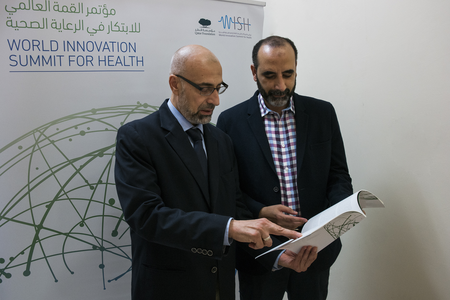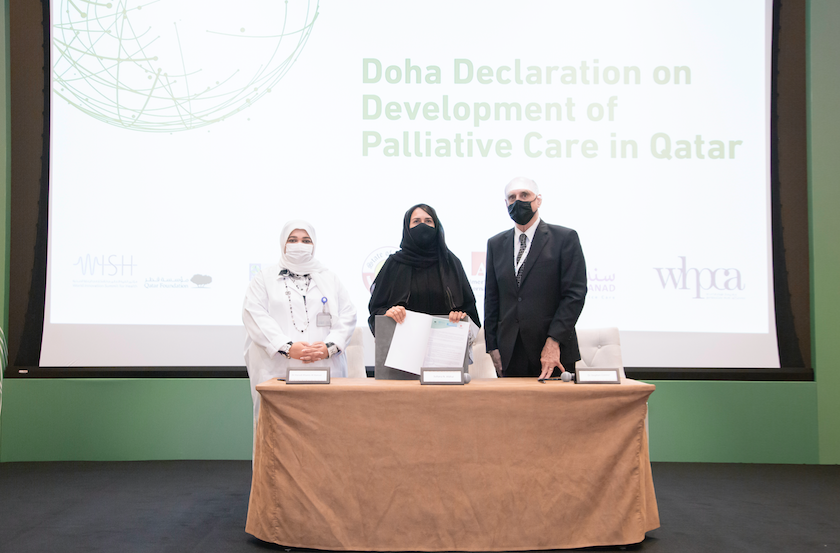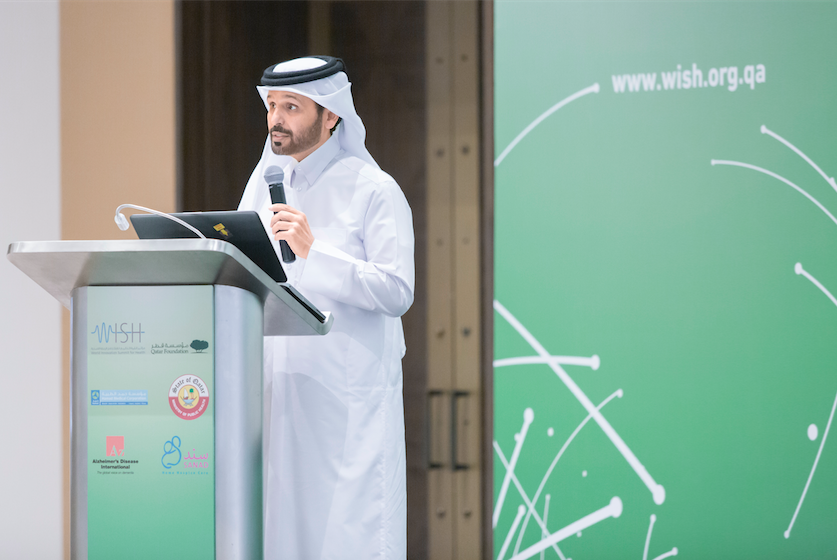WISH Participates in New Study To Engage Public in Genomics From Islamic Perspective

The World Innovation Summit for Health (WISH) is to take part in a new study that will investigate ways to develop religious and culturally sensitive approaches and perspectives for public engagement within the fields of genomics and Islamic biomedical ethics.
The study will be led by Dr. Mohammed Ghaly, who chaired the 2016 forum on genomics at the World Innovation Summit for Health (WISH) and is a professor of Islam and biomedical ethics at the Research Center for Islamic Legislation and Ethics (CILE) within Hamad Bin Khalifa University (HBKU); and Dr. Walid Qoronfleh, Director of Research and Policy at WISH; along with experts from across Qatar and Canada.
Genomics, which involves the study of the complete set of genes found within all living things, including humans, and their functions is heavily reliant on public engagement. The project, entitled ‘Genomics, Islamic Bioethics and Public Engagement: Towards Bridging the Knowledge Gaps’, aims to identify areas of ethical concern to Muslims who participate in genomic studies and strives to offer solutions from an Islamic perspective.
The innovative research project, which is supported by a grant from Qatar National Research Fund , is intended to be of benefit to the work being done by the Qatar Genome Programme (QGP). QGP was announced by Her Highness Sheikha Moza bint Nasser, Chairperson of Qatar Foundation, during WISH 2013 and aims to map the genome of the Qatari population in order to support the development of personalized healthcare in Qatar.
Upon completion of the study, research findings will be available on various interactive platforms and communicated at public events in English and Arabic. The findings will also be used to create guidelines designed to influence public policy regionally and beyond.
Dr. Mohammed Ghaly, Lead Principle Investigator of the research project, said: “Our research aims to help bridge the knowledge gaps that exist between scientists working in genomics, Islamic religious scholars, and the general public in a way that is beneficial for all stakeholders. I am looking forward to working closely with colleagues in Qatar, as well as abroad, to identify the barriers of understanding that currently exist and to play a part in breaking them down.”
Dr. Walid Qoronfleh added: “Genomics is the study of a person’s genes and their interaction with each other and the environment, and this has many applications in medicine. Increasingly, the technology is being used clinically to inform patient care as part of genomics medicine. Globally, there is currently a lack of public understanding of genomics from an Islamic perspective. The public plays a vital role in genomic research, so without such understanding, scientists are limited in the work they can undertake in a field of science that has the potential to greatly benefit society.”
In addition to Dr. Ghaly and Dr. Qoronfleh, the international research team consists of Farah Zahir, Scientist, Qatar Biomedical Research Institute, HBKU; Dr. Khalid Fakhro, Principal Investigator in Translational Medicine, Sidra Medical and Research Center; Hanan Abdul Rahim, Assistant Professor, Qatar University; Ma’n Zawati, Executive Director of the Centre of Genomics and Policy, McGill University, Canada; and Salah Basalamah, Associate Professor, University of Ottawa, Canada. Additional researchers will join the team as the project develops.
WISH, a member of Qatar Foundation for Education, Science and Community Development (QF), has ongoing interest in this field, which previously led to the publishing of a report titled ‘Genomics in the Gulf Region and Islamic Ethics’ that was presented at WISH 2016 in Doha. In April 2017, WISH partnered with CILE and the London-based Islamic Institute for Development and Research (IIDR) to create a two-day training program that explored Islamic biomedical ethics, addressing ethical questions relating to Islam that have arisen as a result of the rapid scientific advancements in biomedicine in recent years. Topics discussed included stem cell research, Assisted Reproductive Technologies (ART) and gamete donation, milk banks, organ transplantation, ethical management of incidental findings, and euthanasia. All topics were addressed in detail from an Islamic perspective.
The WISH 2016 report; ‘Genomics in the Gulf Region and Islamic Ethics’ is available to read via the WISH website: http://www.wish-qatar.org/wish-2016/forum-reports



